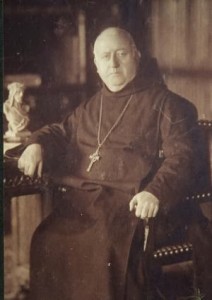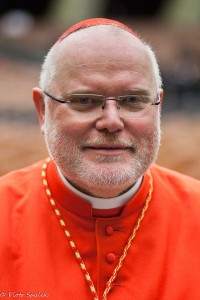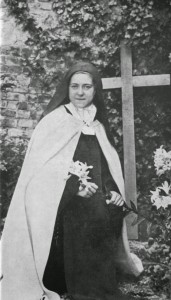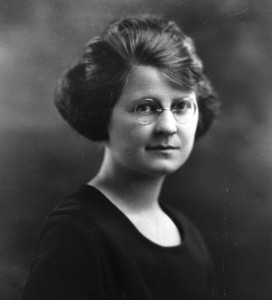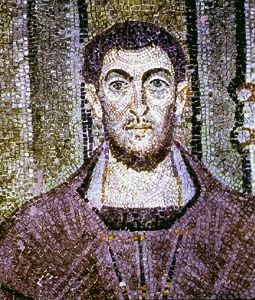Commitment to Marriage
A Letter to the Third Extraordinary General Assembly of the Synod of Bishops
Holy Father, Eminences, and Excellencies,
We rejoice that the Holy Father has captured the world’s attention and so much good will for the Christian faith! Like others we are deeply moved by his expressions of love and mercy, echoing the love and mercy of Christ, especially for those who are defenseless and abandoned.
It is in this context that we welcome the decision to convene an Extraordinary Synod of Bishops to examine the challenges to marriage and the family. Like each of you, we believe the family is, with the Church itself, the greatest institutional manifestation of Christ’s love. For those who wish to love as He would have us love, marriage and the family are indispensable, both as vehicles of salvation and as bulwarks of human society.
Recent popes have made these points abundantly clear. For example, Pope Benedict XVI wrote that, “Marriage is truly an instrument of salvation, not only for married people but for the whole of society.” And, in Evangelii Gaudium, Your Holiness wrote that “the indispensable contribution of marriage to society transcends the feelings and momentary needs of the couple.”
This Synod is an opportunity to express timeless truths about marriage. Why do those truths matter? How do they represent true love, not “exclusion” or “prejudice,” or any of the other charges brought against marriage today? Men and women need desperately to hear the truth about why they should get married in the first place. And, once married, why Christ and the Church desire that they should remain faithful to each other throughout their lives on this earth. That, when marriage gets tough (as it does for most couples), the Church will be a source of support, not just for individual spouses, but for the marriage itself.
You have written so powerfully, Holy Father, of the importance of a new evangelization within the Church: “An evangelizing community gets involved by word and deed in people’s daily lives; it bridges distances, it is willing to abase itself if necessary and it embraces human life, touching the suffering flesh of Christ in others.”
May we humbly suggest that in the context of marriage and family life your words are a call to personal responsibility, not only for our own spouses and children, but for the marriages of those God has put by our side: our relatives and friends, those in our churches and in our schools.
The stakes are high. According to a 2013 Child Trends international report: “Dramatic increases in cohabitation, divorce, and nonmarital childbearing in the Americas, Europe, and Oceania over the last four decades suggest that the institution of marriage is much less relevant in these parts of the world.” In the United States the marriage rate is the lowest ever recorded, unmarried cohabitation is rapidly becoming an acceptable alternative to marriage, and more than half of births to women under 30 years of age now occur outside marriage. Among countless other negative associations, each of these trends has been linked to lower net worth and economic mobility, poverty, and welfare – for women and children, in particular.
Among existing marriages, many are fragile and strained. Between forty and fifty percent of all first marriages in the U.S. are projected to end in divorce. This rate rises sharply with each successive remarriage and research suggests the reason is not low marital quality, but weak commitment.
The consequences of divorce and cohabitation for children and adults are many and diverse – from poverty and lower educational achievement to poorer physical health; from lower marital commitment in adulthood to earlier death. And while every nation is unique, studies show that the impact of these trends spans the globe. A small sampling of such studies: China, Finland, Sweden, Uruguay, Mexico, Greece, Africa, and East Asian Pacific nations.
The costs of pornography to societies are significant. Studies of pornography’s impact on relationships suggest it is a major contributor to the destruction of marriages. Unfortunately, long-term research on pornography’s effect on marriage is virtually nonexistent.
So called “no fault divorce” laws in the U.S. and many other nations have licensed a system in which judges and lawyers facilitate the dissolution of marriages, often against the will of spouses who stand firm in their marital commitment.
Despite the bleakness of these trends, we are encouraged and made resolute by the Holy Father’s exhortation: “Challenges exist to be overcome! Let us be realists, but without losing our joy, our boldness and our hope-filled commitment.”
Perhaps the boldest new way we can evangelize married couples (and by extension their children’s future marriages) is to build small communities of married couples who support each other unconditionally in their vocations to married life. These communities would provide networks of support grounded in the bonds of faith and family, commitment to lifelong marriage, and responsibility to and for each other.
Here we offer some practical ways to create and sustain such communities:
• Commission the Pontifical Council on the Family to conduct cross-discipline, longitudinal research on the role of pornography and “no fault” divorce in the marriage crisis.
• Educate seminarians. Provide mandatory courses covering social science evidence on the benefits of marriage, threats to marriage, and the consequences of divorce and cohabitation to children and society.
• Train priests to showcase in their homilies the spiritual and social value of marriage, contemporary challenges to it, and parish help for troubled marriages. A recent study found that 72% of American Catholic women say the weekly homily is their primary source for learning about the faith.
• Create small, vibrant networks of strong married couples as mentors at the parish level, available to give spouses the tools to sustain healthy, lifelong marriages.
• Educate parishioners on the extraordinary influence they can have on the marriages of friends and family. Social science data show that the presence of divorced family and friends increases one’s own risk of divorce. Alternatively, the data suggest that family members and friends can increase commitment and satisfaction within marriages of those they love through their example and support.
• Encourage and support the reconciliation of married couples who are separated or have been divorced by civil courts.
• Request bishops worldwide to initiate regular prayers during Sunday Mass for strong, faithful marriages.
• Support efforts to preserve what is right and just in existing marriage laws, to resist any changes to those laws that would further weaken the institution, and to restore legal provisions that protect marriage as a conjugal union of one man and one woman, entered into with an openness to the gift of children, and lived faithfully and permanently as the foundation of the natural family.
• Support religious freedom in divorce courts. Many do not know that religious freedom is routinely violated by divorce judges who ignore or demean the views of a spouse who seeks to save a marriage, keep the children in a religious school, or prevent an abandoning spouse from exposing the children to an unmarried sexual partner. Begin a consortium of attorneys and legislators to combat this problem.
To accomplish any of these goals on an international scale would be a great step forward for marriages and families. To accomplish them all may turn the worldwide marriage crisis on its head.
With your leadership we will help marriages to succeed and flourish by placing the greatest value on marital commitment – at every level of society, in every corner of the world. We thank Your Holiness, Eminences, and Excellencies for taking up this vital task and you may be assured of our prayers for its great success.
Signed:
[Affiliations, where listed, are for identification purposes only]
Greg and Julie Alexander
Founders, The Alexander House Apostolate, Texas
Ryan T. Anderson
William E. Simon Fellow in Religion and a Free Society, The Heritage Foundation, Washington, DC
Erika Bachiochi, Esq., legal scholar and author, Massachusetts
Monsignor Renzo Bonetti
Founder and President, Fondazione Famiglia Dono Grande, Italy
Gerard Bradley
Professor of Law, University of Notre Dame Law School
Ana María Celis Brunet
Professor of Law, Pontificia Universidad Católica de Chile
Mary Eberstadt
Senior Fellow, Ethics and Public Policy Center, Washington, DC
Jason and Crystalina Evert
Founders, Chastity Project, Colorado
Patrick Fagan
Director, The Marriage and Religion Research Institute, Family Research Council, Washington, DC
Thomas Farr
Visiting Associate Professor and Director, The Religious Freedom Project Georgetown University
Silvio Ferrari
Professor of Law, University of Milan, Italy
Richard Fitzgibbons
Director, The Institute for Marital Healing, Pennsylvania
Juan G. Navarro Floria
Profesor Ordinario, Pontificia Universidad Católica Argentina
Matthew Franck
William E. and Carol G. Simon Center on Religion and the Constitution
The Witherspoon Institute, New Jersey
Robert P. George
McCormick Professor of Jurisprudence, Princeton University
Mary Ann Glendon
Learned Hand Professor of Law, Harvard University
Bruce and Jeannie Hannemann
Co-Directors, RECLAiM Sexual Health
Co-Founders, Elizabeth Ministry International
George A. Harne
President, The College of Saint Mary Magdalen
Mary Hasson
Fellow, Catholic Studies Program, Ethics and Public Policy Center, Washington DC
Alan J. Hawkins
Professor of Family Life, Brigham Young University
Kent R. Hill
International Development leader, Washington DC
Byron Johnson
Distinguished Professor of the Social Sciences and
Director, Institute for Studies of Religion, Baylor University
Thomas Lickona
Director, Center for the 4th and 5th Rs (Respect and Responsibility) State University of New York at Cortland
John McCarthy
Dean, School of Philosophy, The Catholic University of America
Rocco Mimmo
Chairman, Ambrose Centre for Religious Liberty, Sydney, Australia
Gloria M. Moran
Professor of Law, Chair of Law, Religion and Public Policy, University of La Coruña Spain
Jennifer Roback Morse
President, Ruth Institute, California
Melissa Moschella
Assistant Professor of Philosophy, The Catholic University of America
Rafael Navarro-Valls
Emeritus Professor of Law, Complutense University, Spain
Secretary General of the Spanish Royal Academy of Jurisprudence and Legislation
Rafael Palomino
Professor of Law, Complutense University, Spain
Marcello Pera
Former President, Senate of Italy
Professor, Pontifical Lateran University, Rome, Italy
Vicente Prieto
Universidad de La Sabana, Bogotá, Colombia
Fr. Juan Puigbó
Diocese of Arlington, VA
David Quinn
Director, The Iona Institute, Ireland
Mark Regnerus
Associate Professor of Sociology, University of Texas at Austin
Balázs Schanda
Professor of Law, Pázmány Péter Catholic University, Hungary
Alan E. Sears
President, CEO, & General Counsel, Alliance Defending Freedom
Reverend Charles Sikorsky
President, The Institute for the Psychological Sciences, Virginia
O. Carter Snead
Professor of Law, William P. and Hazel B. White Director, Center for Ethics and Culture, University of Notre Dame
Reverend D. Paul Sullins
Professor of Sociology, The Catholic University of America
Senior Fellow for Family Studies, Family Research Council
President, The Leo Institute, Washington, DC
Rebecca Ryskind Teti
Center for Family Development at Our Lady of Bethesda
Mervyn Thomas
Chief Executive, Christian Solidarity Worldwide, United Kingdom
Javier Martinez-Torron
Professor of Law, Chair of the Department of Law and Religion, Complutense University
Hilary Towers
Psychologist, Manassas, Virginia
D. Vincent Twomey
Professor Emeritus of Moral Theology, Pontifical University, Maynooth, Ireland
Paul C. Vitz
Senior Scholar and Professor, The Institute for the Psychological Sciences, Virginia
Rick Warren,
Founder and Pastor, Saddleback Church, Lake Forest, California
Robert Wilken
William R. Kenan, Jr. Professor of the History of Christianity Emeritus, University of Virginia
